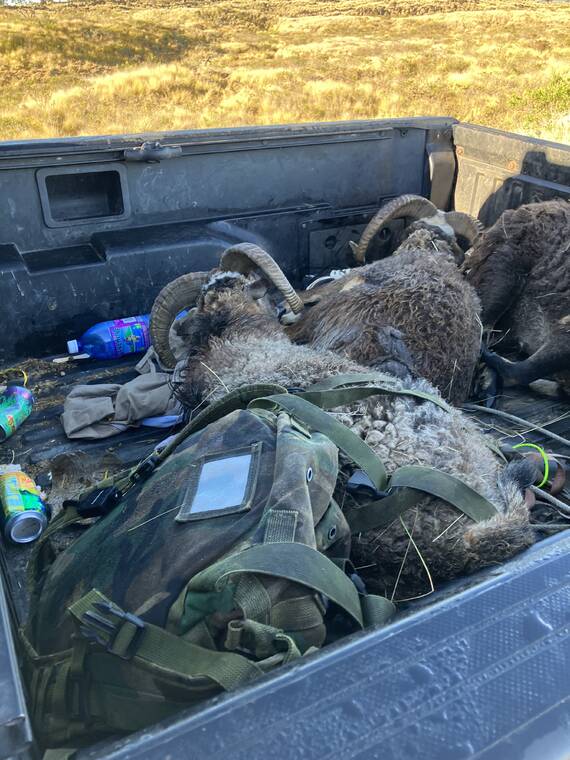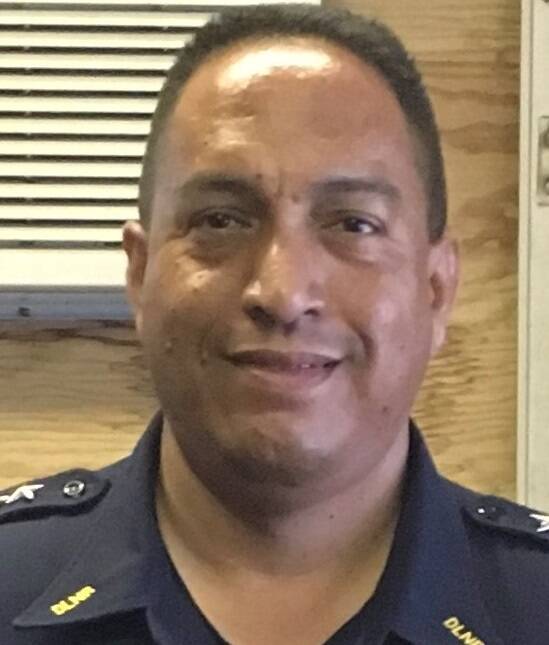Four Big Island residents and one Oahu resident were cited and fined Thursday for attempting to poach 16 sheep on Daniel K. Inouye Highway.
According to a report by the state Department of Land and Natural Resources, officers from the department’s Division of Conservation and Resources Enforcement happened upon a pair of 18-year-olds on the highway in the early morning hours of Nov. 9.
The two teens were stopped within the Pohakuloa Military Training Area on the border of the Pu‘uanahulu Game Management Area. The officers discovered that the teens had in their possession three live male sheep.
However, they did not have in their possession any valid hunting license, which led to the two being cited.
Kodee K. Menino of Keaau was cited for violations relating to having no hunting license, hunting outside of valid hours, and the removal of live animals. He was fined a total of $850.
Vito J. Ulufale of Waianae also was cited for hunting license and hunting hours violations, incurring a $350 fine.
DOCARE also is investigating the involvement of two other men, one of whom was taken to the hospital after running into the bush and suffering an unspecified medical emergency.
Less than an hour after citing Menino and Ulufale, officers found another vehicle parked along the highway within PTA. This vehicle, a truck, was carrying 12 male sheep and one female sheep, as well as a trio of adult men not in possession of any hunting licenses.
Simon P. P. Whippy, 43, of Honokaa, Wyllen James K. Takaki, 20, of Waimea and Joseph K. Marquiz, 24, of Kapaau were all cited for hunting license and hunting hours violations, with each man fined $350.
This second group of poachers did not appear to be working with the first, according to the DLNR report.
All 16 sheep involved in the two incidents were freed and returned to the wild.
This is the second time that Big Island DOCARE officers have invoked the division’s Civil Resource Violation System, a protocol that was introduced this fall that allows the officers to immediately levy fines for resource violations without either the suspects or officers having to go to court — although those cited can contest the charges or request a contested case hearing.
“CRVS is an efficient and immediate way for our officers to deal with natural and cultural resource violations,” said DOCARE Chief Jason Redulla in a statement.
“These cases also point to the value of our officers always being vigilant when they spot anything that looks out of place.”









